Navigating The Landscape: Florida CCW Reciprocity And Its Impact On Travelers
Navigating the Landscape: Florida CCW Reciprocity and Its Impact on Travelers
Related Articles: Navigating the Landscape: Florida CCW Reciprocity and Its Impact on Travelers
Introduction
With great pleasure, we will explore the intriguing topic related to Navigating the Landscape: Florida CCW Reciprocity and Its Impact on Travelers. Let’s weave interesting information and offer fresh perspectives to the readers.
Table of Content
Navigating the Landscape: Florida CCW Reciprocity and Its Impact on Travelers
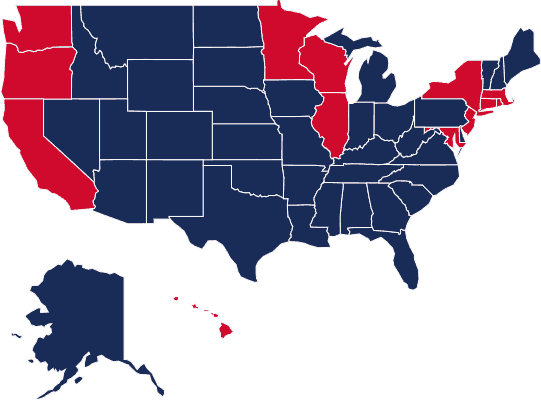
The right to bear arms is a cornerstone of American constitutional law, and the ability to legally carry a concealed weapon is a privilege enjoyed by many citizens. For those residing in Florida, understanding the state’s concealed carry reciprocity agreements is crucial, especially when traveling. This article delves into the complexities of Florida’s reciprocity landscape, providing a comprehensive overview of the states that recognize Florida concealed carry permits and the implications for travelers.
Florida’s CCW Permit: A Foundation for Reciprocity
Florida’s concealed carry permit, officially known as a "Concealed Weapon or Firearm License," allows eligible residents to legally carry a concealed firearm within the state. The issuance of these permits is governed by Florida Statute 790.01 and subsequent amendments. To obtain a Florida concealed carry permit, applicants must meet specific requirements, including:
- Age: Be at least 21 years old.
- Residency: Be a legal resident of Florida.
- Background Check: Pass a criminal background check.
- Training: Complete a firearms safety course approved by the state.
- Mental Health: Not be adjudicated as mentally defective or involuntarily committed to a mental health facility.
- Legal Status: Not be subject to a restraining order or injunction.
Once granted, the Florida concealed carry permit allows holders to carry a concealed firearm in designated locations within the state. However, the permit’s value extends beyond Florida’s borders, thanks to reciprocity agreements.
Reciprocity: Expanding the Scope of Concealed Carry
Reciprocity, in the context of concealed carry, signifies an agreement between states to recognize each other’s concealed carry permits. This means that a Florida resident with a valid concealed carry permit can legally carry a concealed firearm in states that have reciprocity agreements with Florida.
Understanding the Florida CCW Reciprocity Map
The Florida CCW reciprocity map is a visual representation of states that recognize Florida concealed carry permits. It is a valuable tool for Florida residents who frequently travel, allowing them to determine where they can legally carry their firearms. However, it’s crucial to note that the map is subject to change, and it is always advisable to confirm the most up-to-date information directly with the relevant state authorities.
Navigating the Reciprocity Landscape: Key Considerations
While the Florida CCW reciprocity map provides a general overview, it’s essential to understand that reciprocity agreements can vary in their scope and limitations. Here are some key considerations:
-
Specific Requirements: Some states may have additional requirements beyond simply possessing a valid Florida concealed carry permit. These requirements might include:
- Registration: Some states require out-of-state permit holders to register their permit with the state.
- Training: Certain states may demand additional firearms training or specific course completion.
- Permit Validity: Some states may impose restrictions based on the duration of the Florida permit’s validity.
- Prohibited Locations: Even in states with reciprocity, certain locations may be off-limits to concealed carry, such as schools, government buildings, or private businesses.
- State-Specific Laws: It is crucial to familiarize oneself with the specific concealed carry laws of the state being visited, as these laws can vary significantly.
The Importance of Due Diligence: Research and Verification
While reciprocity agreements offer valuable convenience, it’s vital to approach them with caution. Always conduct thorough research and verify the most up-to-date information before traveling. Consult with the relevant state authorities, law enforcement agencies, or reputable firearms organizations to confirm the specific requirements and limitations of reciprocity in the destination state.
FAQs: Addressing Common Questions about Florida CCW Reciprocity
Q: Does Florida have reciprocity with all states?
A: No, Florida does not have reciprocity with all states. The reciprocity map is constantly evolving, and it’s vital to verify the most current information.
Q: What happens if I travel to a state that doesn’t have reciprocity with Florida?
A: If you travel to a state that doesn’t recognize your Florida concealed carry permit, you will be legally prohibited from carrying a concealed firearm. You may be subject to fines, penalties, and even criminal charges if you violate the state’s laws.
Q: Can I use my Florida concealed carry permit to purchase a firearm in another state?
A: No, a Florida concealed carry permit does not grant you the right to purchase a firearm in another state. Federal law requires background checks for all firearm purchases, and these checks are conducted through the National Instant Criminal Background Check System (NICS).
Q: What are some tips for traveling with a concealed firearm?
A:
- Research: Thoroughly research the laws of the destination state, including concealed carry regulations, prohibited locations, and any specific requirements for out-of-state permit holders.
- Verification: Confirm the most up-to-date reciprocity information with the relevant state authorities or reputable firearms organizations.
- Compliance: Ensure that your firearm is properly stored and transported in accordance with state and federal laws.
- Documentation: Carry your concealed carry permit and any other relevant documentation, such as registration forms or training certificates, when traveling.
- Discretion: Exercise discretion and avoid drawing unnecessary attention to yourself when carrying a concealed firearm.
- Safety: Prioritize safety and follow responsible gun handling practices at all times.
Conclusion: Navigating the Reciprocity Landscape with Knowledge and Responsibility
Florida’s CCW reciprocity map provides a helpful guide for residents seeking to exercise their right to carry a concealed firearm while traveling. However, it is crucial to remember that reciprocity agreements are dynamic and subject to change. Always conduct thorough research, verify information, and comply with the specific laws of the state being visited. By approaching reciprocity with knowledge, responsibility, and respect for the law, travelers can navigate the landscape of concealed carry with confidence and safety.
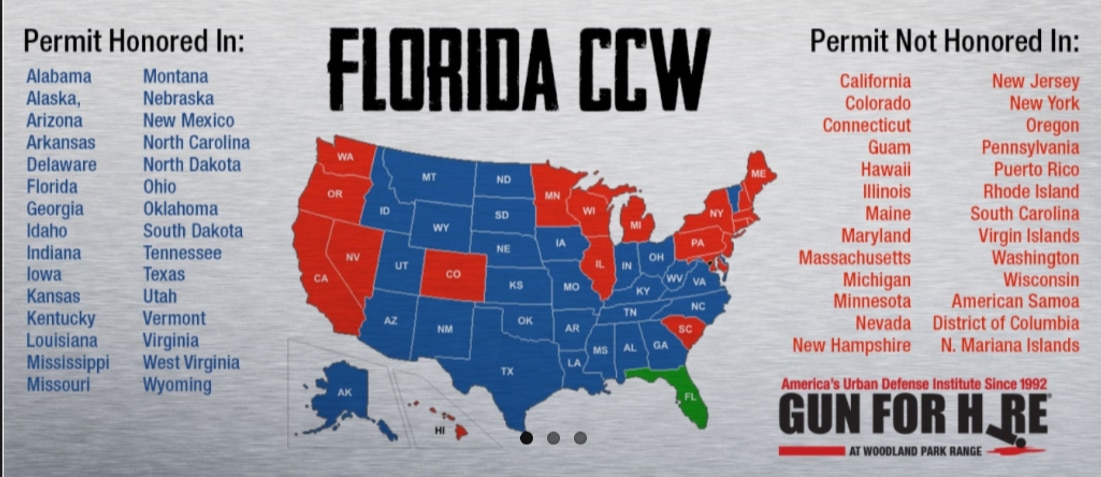
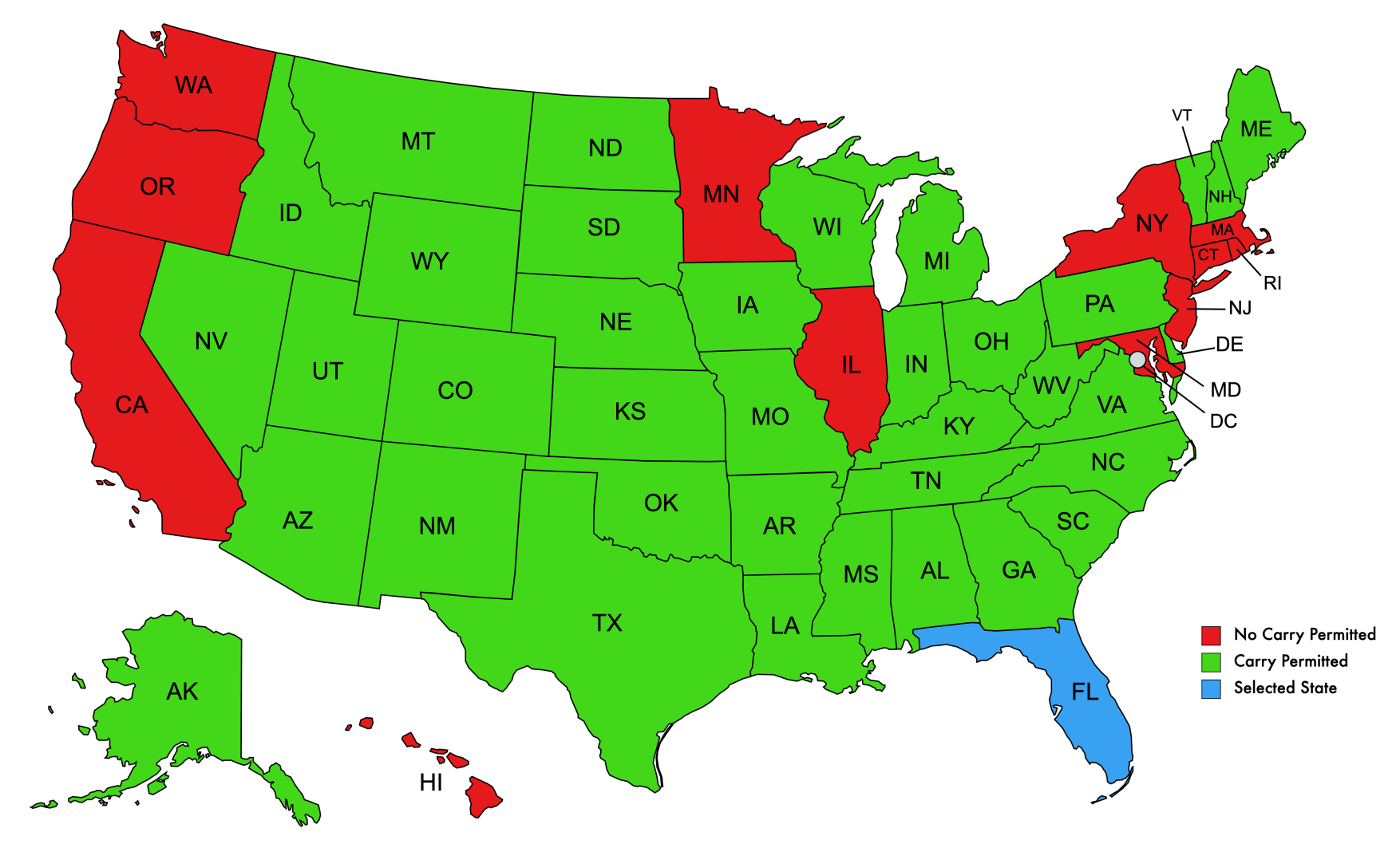
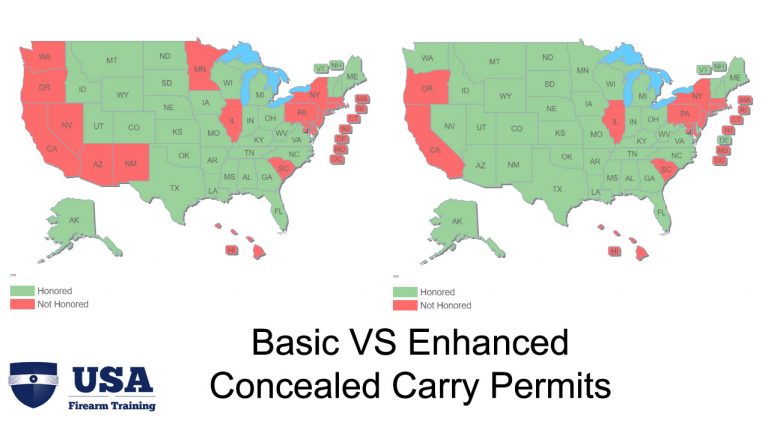
.png)

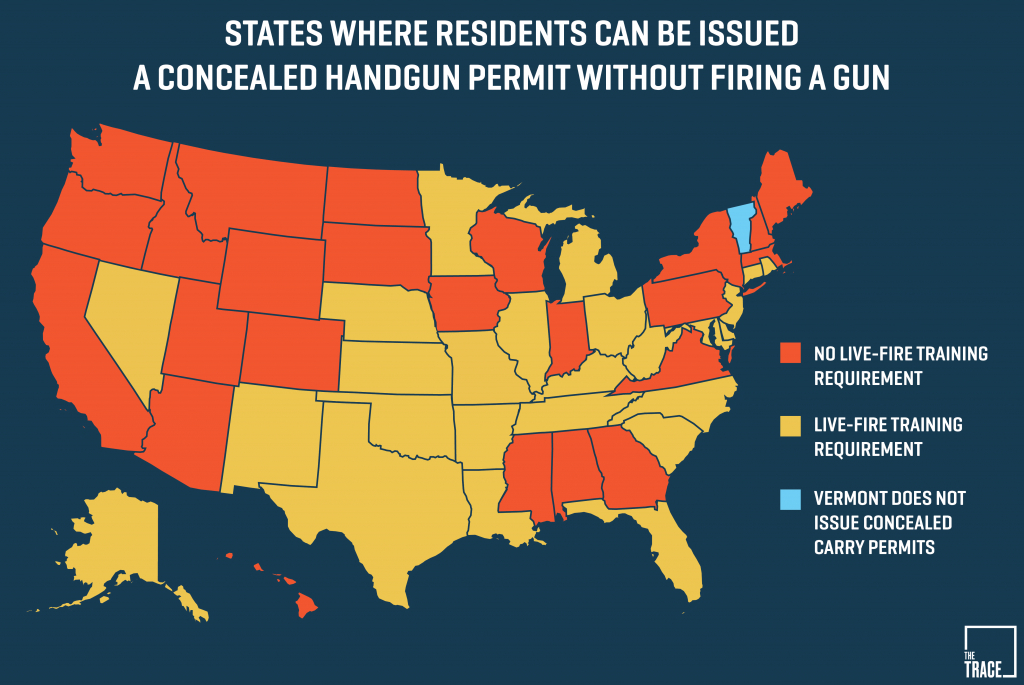


Closure
Thus, we hope this article has provided valuable insights into Navigating the Landscape: Florida CCW Reciprocity and Its Impact on Travelers. We appreciate your attention to our article. See you in our next article!